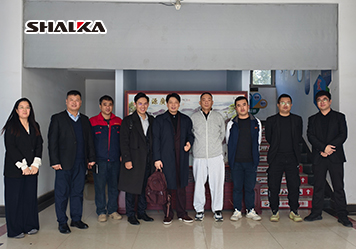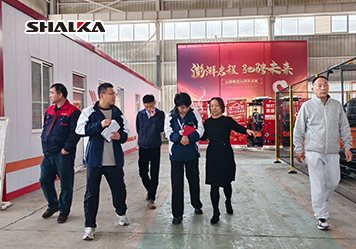The growing market demand is one of the key factors driving the rapid development of small excavators. With the acceleration of urbanization, urban construction and infrastructure construction is constantly being promoted. In the narrow urban space, large excavators are often difficult to show their hands, and small excavators with its compact and flexible characteristics, can easily shuttle in the narrow streets, hutongs and some indoor places, such as basements, shopping malls, etc., to carry out a variety of small-scale construction operations, to meet the diversified construction needs of urban construction. For example, in the city’s old neighborhood renovation projects, small excavators can accurately excavate and demolish local areas without excessive impact on the surrounding environment. At the same time, in the construction of new rural areas, small excavators also play an important role in the construction of farmland water conservancy, rural road repair, etc., to improve rural production and living conditions to provide strong support.
Technological progress also provides a strong impetus for the development of small excavators. Today’s small excavators have significantly improved in performance. On the one hand, the improvement of engine technology makes its power more powerful, fuel efficiency is higher, reducing the use of cost at the same time, but also reduce environmental pollution. On the other hand, the optimization of the hydraulic system makes the operation of small excavators more smooth and precise, and can easily cope with a variety of complex working conditions. In addition, the application of intelligent technology is more colorful for small excavators. For example, some advanced small excavators are equipped with intelligent control systems, the operator can remote control and real-time monitoring of the excavator through the remote control or display screen, greatly improving work efficiency and safety.
Policy support and guidance is also a factor that can not be ignored. The government has introduced a series of policies to encourage the development of the construction machinery industry, creating a favorable policy environment for the research and development, production and sales of small excavators. These policies not only in the tax, capital and other aspects of the enterprise to give certain concessions and support, but also promote the development and improvement of industry standards, prompting the small excavator industry towards standardization, standardization of the direction of development. For example, the relevant departments of the small excavator safety standards, emission standards and other clear provisions, which not only protects the safety of the user and the quality of the environment, but also prompts enterprises to continuously improve product quality and technical level.
In addition to the above factors, the advantages of the small excavator itself is also an important reason for its rapid development. Compared with traditional large excavation equipment, small excavator has low cost, easy maintenance and other characteristics. It does not require special large transport vehicles for transit, ordinary trucks or trailers can complete the transport, greatly reducing the transport costs and equipment mobility requirements. Moreover, the structure of the small excavator is relatively simple, maintenance is more convenient, parts replacement is easy to obtain, which makes it favored in the rental market and small construction enterprises.



